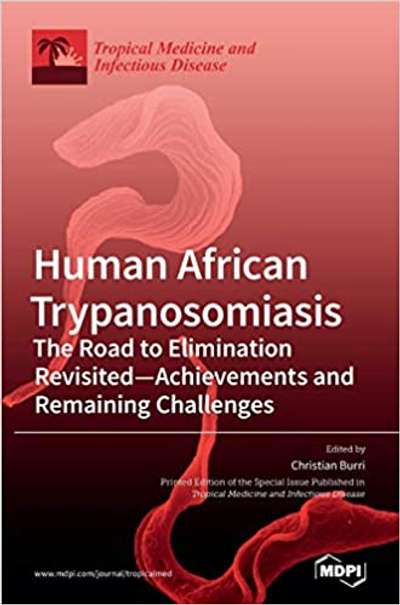Human African Trypanosomiasis (Sleeping Sickness)
Christian Burri

*Available as Download Only
As it is a goal to eliminate human African trypanosomiasis (HAT; sleeping sickness) as a public health problem by 2020 and interrupt transmission by 2030, this is a good moment to reflect on what we have achieved, what we want to achieve, and what could get in our way. HAT has a reputation for spectacular reappearances, and the latest peak of 40,000 reported and over 300,000 estimated cases only dates back to 1998. Efforts of the WHO and partners as well as the development of simpler and much better-tolerated treatments, improved diagnostics, and vector control tools made it possible to reduce this number by 95%. Case identification and confirmation remain complex and require specific skills, treatment remains error-prone and reports on long-term survivors have emerged, and the relevance of the animal reservoir for T. b. gambiense HAT needs clarification. In addition, to win the "end game" against this massively stigmatized disease, the human factor will play a key role. This Special Issue addresses many of the burning topics about disease elimination in its 12 research and 7 review articles and one case study. The papers critically reflect the approaches used, investigate the mentioned challenges, and propose novel approaches and interventions from various points of view.
MDPI Book Link (available for purchase)
Detail Penerbitan
- Terbit: 2020
- Penerbit: Mdpi AG
- ISBN-10: 3039289632
- ISBN-13: 978-3039289639